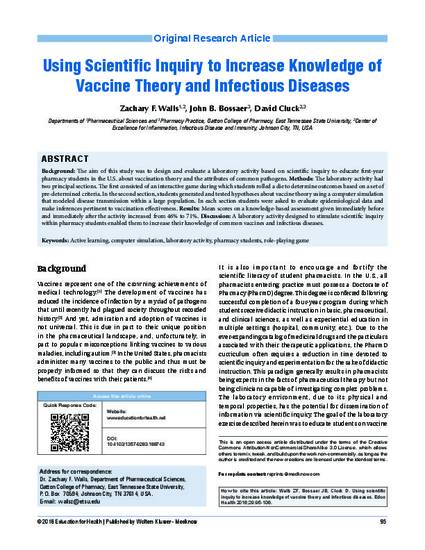
Background: The aim of this study was to design and evaluate a laboratory activity based on scientific inquiry to educate first-year pharmacy students in the U.S. about vaccination theory and the attributes of common pathogens. Methods: The laboratory activity had two principal sections. The first consisted of an interactive game during which students rolled a die to determine outcomes based on a set of pre-determined criteria. In the second section, students generated and tested hypotheses about vaccine theory using a computer simulation that modeled disease transmission within a large population. In each section students were asked to evaluate epidemiological data and make inferences pertinent to vaccination effectiveness. Results: Mean scores on a knowledge-based assessment given immediately before and immediately after the activity increased from 46% to 71%. Discussion: A laboratory activity designed to stimulate scientific inquiry within pharmacy students enabled them to increase their knowledge of common vaccines and infectious diseases.
Available at: http://works.bepress.com/john-bossaer/14/

© 2016 Education for Health. This document was originally published in the Education for Health.